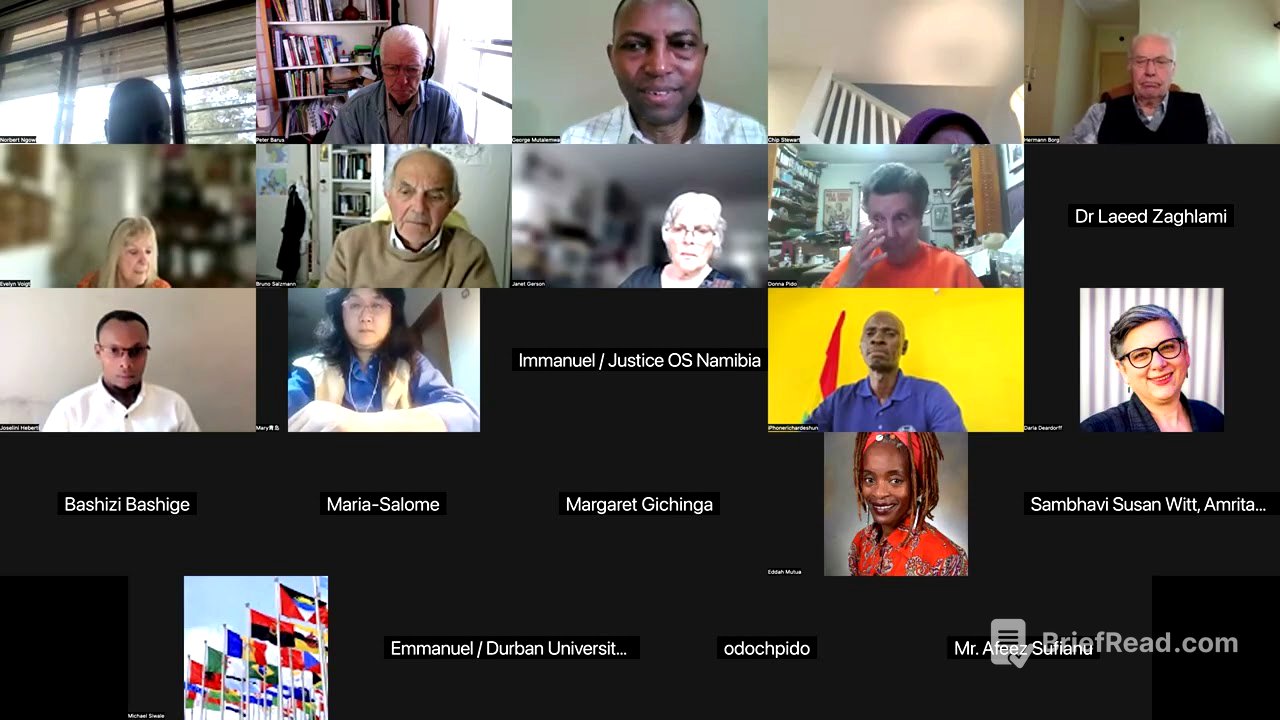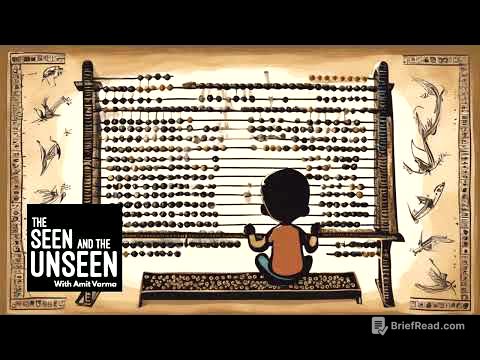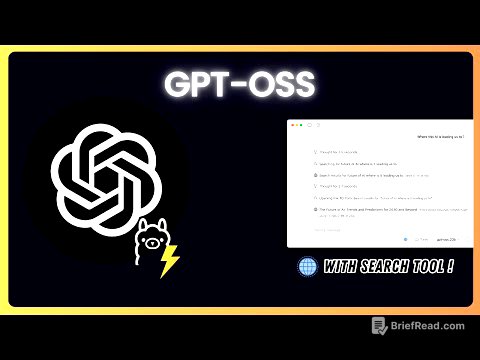TLDR;
This video features a presentation by Emmanuel Hamatsipi on why global peace initiatives often fail to find solutions in Africa. He argues that these initiatives are too Eurocentric and ignore African indigenous knowledge systems (IKS). Emmanuel suggests that international bodies are failing by overlooking valuable African wisdom and proposes a "reboot" by integrating IKS into peace-building efforts. The presentation explores the causes of this "error 404," examines case studies, and calls for policy reforms to embed IKS in global and regional systems.
- The global peace system is crashing because it's ignoring African peace solutions.
- International bodies are failing because they're ignoring African indigenous knowledge systems (IKS).
- There's a need to integrate indigenous knowledge systems into global and regional systems.
Introduction [0:00]
George Muta introduces Emmanuel Hamatsipi, a researcher at the Institute for Impact Sciences and Research Design in Namibia, who will be speaking on the theme "Error 404: Why the World's Peace Software Can't Find African Solutions." Emmanuel is also a member of the Africa Peace and Government Network.
The Crisis in Global Peace Systems [0:58]
Emmanuel highlights the ongoing conflicts around the world, including those between India and Pakistan, the Israeli bombardment of Yemen, and various pockets of conflict in Africa. Despite the efforts of the United Nations, regional bodies, and respective governments, there seems to be no end in sight. The UN spends billions on peace missions, and the International Criminal Court (ICC) has a budget of over $225 million a year, yet tangible results are lacking. This is "Error 404" because the world's peace software is Eurocentric and incompatible with the global south environment.
Defining Error 404 [4:48]
Emmanuel defines a 404 error as a web page not found due to moved or deleted pages or broken links. In the context of peace-building, it represents the UN and the ICC missing African IKS. He poses rhetorical questions about why global systems crash when African peace solutions are available.
Causes of the Error [6:34]
Emmanuel explains that a 404 error is a client-side error, meaning the user's request misses the mark. Examples include the UN's $6.4 billion missions ignoring IKS, the ICC dismissing the gacha system (which has 85% trust), and Eurocentric systems sidelining SADC missions. He questions whether peace can function when systems erase African indigenous knowledge systems.
The Global Paradox [11:07]
The ICC spends roughly $200 million per year, yet countries are ejecting themselves from the system due to a lack of legitimacy. In contrast, the gacha principle of the Kikuyu enjoys almost 85% trust among the local community. Emmanuel questions how this marginalisation can endure when it sidelines what is unscientific, and calls for reprogramming with African solutions.
The Main Question [14:14]
Emmanuel reiterates the main question: why can't the world's peace software find African solutions?
Theoretical Framework [16:27]
Emmanuel discusses the theoretical framework behind his presentation, noting that global peace-building efforts crash because the UN and ICC ignore indigenous knowledge systems. He highlights the African bias in systems like the DRC and Mali, which lack legitimacy because they silence IKS. He references decolonial and restorative frameworks from authorities like Ngũgĩ wa Thiong'o, Bishop Desmond Tutu, and Boaventura de Sousa Santos, emphasising that silencing indigenous knowledge systems is violent.
The Bug: Systemic Erasure [22:54]
Emmanuel identifies the "bug" as the systemic erasure of indigenous knowledge. Peacekeeping bodies like SADC, the UN, and the ICC marginalise these systems. The UN vetoes resolutions and spends billions on missions that ignore IKS, while the ICC deems IKS unscientific. He questions how peace can thrive when IKS is erased, noting the failures of these institutions in places like Lebanon, Palestine, Ukraine, and the DRC.
Action Research: Why It Matters [29:52]
Emmanuel emphasises the importance of action research, which designs indigenous knowledge systems. He cites success stories in the Bulma region and Mozambique, where action research has played a critical role in bringing about peace. IKS builds trust, as seen with the gacha system (85% trust) compared to the UN or ICC, which have lost credibility. He questions whose knowledge counts if IKS is silenced, asking whether the knowledge of researchers from prestigious universities should override the knowledge of affected communities.
How Indigenous Knowledge Systems Work [35:14]
Emmanuel discusses how indigenous knowledge systems work, highlighting restorative justice practices that have led to significant prison reductions and drops in violence. He questions why these facts are ignored. He contrasts justice as retribution (as pursued by the ICC) with IKS restoration, using Rwanda as a success story driven by local efforts. He argues for using traditional knowledge systems to bring together conflicting parties, such as Palestinians and Israelis, and criticises the ICC for being rendered a "white elephant."
Case Study 1: Rwanda [42:39]
Emmanuel highlights the gacha system in Rwanda, which addressed over a million cases with 85% trust for a mere $40 million. This could clear Ukraine's case backlog, unlike the ICC's $200 million budget. Despite some due process gaps, IKS justice is proven to be very effective. He questions whether justice can be global without indigenous knowledge system efficacy.
Case Study 2: Palestine-Israel [44:50]
Despite efforts by the UN, European Union, and elders, nothing tangible has been achieved in the Palestine-Israel conflict. Violence is spiking daily. Emmanuel suggests that Palava can foster dialogue, bringing together Palestinians and Israelis as brothers from the same root. He believes that sitting down under the Palava tree can lead to peace in the Middle East.
Case Study 3: Sudan [47:39]
Emmanuel notes that Sudan has been ravaged by conflict, and its leaders have not cooperated with the ICC. UN missions have failed to bring peace, and the country ended up being divided. However, Sudanese people initiated the Zande councils, which achieved almost 88% trust and resolved 60% reparations. He suggests that the UN and ICC should capacitate local efforts and indigenous knowledge systems.
African Conflicts [52:14]
Emmanuel argues that IKS is a reliable tool for resolving conflicts in the African context. IKS dialogue cuts tension by almost 45%, and Mozambican peace guardians reduce violence by 30%. He questions whether regional peace can thrive without indigenous knowledge systems or rooted wisdom.
Embedding IKS in Global Regional Systems [54:55]
Emmanuel calls for the integration of indigenous knowledge systems into the UN, ICC, and European Union efforts to bring about peace. He suggests mandating IKS in UN solutions and training peacekeepers in Palava. He emphasises the importance of equipping locals with skills and resources to foster interconnectedness and Ubuntu. He also suggests reforming policies to ensure the ICC is mandated by IKS.
Policy Reforms and Conclusion [58:53]
Emmanuel calls for institutionalising IKS in peacekeeping missions and funding research. He asks what the future holds for peace without plural knowledge. He concludes by stating that it's time to reboot, advocating for IKS in peacekeeping missions. He questions whether peace can thrive without ontological depth and emphasises the need to address knowledge systems at whatever cost. He acknowledges that some scientists and academics may view IKS as unscientific, but it has worked and is working, especially in the global south.
Discussion and Q&A [1:04:14]
Following the presentation, participants engage in a discussion, raising questions and making comments about the role of indigenous knowledge systems in peace-building, the limitations of the internet, and the need for a more human-centred approach to conflict resolution.









